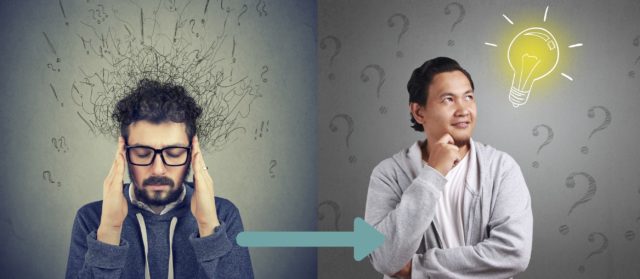How often do you find yourself asking, “How can I feel better?”
Let’s face it – some emotions are easier to feel than others. It’s scary to feel the “negative” emotions such as anger, sadness and fear.
Often I hear people say, “If I start crying now, I’ll never stop!” But the truth is, un-processed, stuck, and excessive emotions cause disease, while expressed and harmoniously flowing emotions prevent illness and support healthy personal growth and unfoldment.
The truth is, we evolve through our emotions. Nothing gets us closer to our divinity like the journey of going through grief. When channeled constructively, anger is mobilizing and fuels creativity. Nothing brings about relief and positive change like the full and creative expression of feeling.
In its infinite complexity, the theories in Chinese Medicine are rooted in observation of the natural world. When observing natural phenomena, useful data is obtained to help us understand ourselves and the world around us.
Chinese Medicine describes the emotions as the movement of Qi.
In Chinese Medicine everything is described in terms of Qi – prana, life-force, energy – which is defined as both, form and function. The body is made of Qi (and so is a table). Movement, feeling, thought – are also all Qi.
We can access this ancient wisdom and learn to re-direct our Qi in order to harmonize the emotions.
The practice of cultivating health, spirituality and martial arts acumen known as Qi Gong means “life-energy cultivation”. Acupuncture works by accessing and re-directing your Qi in order to restore harmony to various systems in the physical, emotional, mental and spiritual bodies.
Anger is the Rising of Qi.

The associated organ in Chinese Medicine is the Liver. Imagine an angry person: standing, shouting, red face and steam coming out the ears! Often times we try to repress anger by letting it “simmer”…and if not tamed or if another trigger comes along, it begins to “boil” and perhaps, if really allowed to keep cooking, leads to “exploding in anger!”
Balanced anger = creativity, setting healthy boundaries, action.
Stuck/excessive anger = pain, headaches, inflammation, depression and the potential for dangerous action.
How to balance it:
- vent it – acknowledge that you’re angry and vent to a friend, a journal, a punching bag, etc.
- inhale for a count of 5 and exhale forcefully through an open mouth for a count of 7. Do this for 3 minutes or more
- bring the Qi down by pushing your palms and bare feet to the earth
Fear is the Sinking of Qi.

“I was so scared I nearly $#!t my pants!” Remember the sensation of all the color draining from your face, the feeling of the world “coming down”, the desire to cower and hide? When fear is operating we shut down, hunker down, and get down. Qi goes down we may encounter difficulty and hypervigilance in coming out of hiding. It may be very hard to stand back up. Fear is associated with the Kidneys.
Balanced fear = protective, courageous, humility, cautious exploration.
Stuck/excessive fear = pain, failure to thrive, hiding and not living life.
How to balance it:
- acknowledge your fear and know that it is OK to feel – the hind brain doesn’t know the difference between a perceived threat and a real one.
- feel the ground underneath you, feel your body and recognize ways in which you are physically safe.
- push your hands out, palms first, in all directions to establish your boundaries and create space around you. Breathe into that space, open your chest, lift your head and stand in a power pose (like the Superman or Wonder Woman stance) for at least 3 minutes several times each day.
Worry is the Knotting of Qi.

Worry is an emotion associated with the Spleen and Stomach, according to Chinese Medicine. How about that “knot in the stomach”? Feeling “tied up”? Think of someone wringing their hands constantly in worry, as though they keep tying a knot over and over. And when knots get tied upon themselves what we end up with is a tangled mess that typically translates to digestive issues, indecision and an inability to act.
Balanced worry = problem-solving, making plans, caring for others
Stuck/excessive worry = digestive issues, indecision, inaction or aimless/wasteful reactive action.
How to balance it:
- get it out of your mind and into the world! Journal, sculpt, exercise, dance. Express creatively and move your body to get out of your head.
- listen to calming music (delta waves on binaural beats) and meditate – observing your breath, letting your thoughts drift by like clouds.
- take a bath with epsom salts and essential oils like lavender or bergamot.
Sadness Consumes Qi

Think of the person “consumed by grief”. They’re weak, have no motivation or energy for anything. Any bit of hope they can muster gets devoured, consumed, down into the abyss. For some this leads to excess consumption – of food, of substances, of television, etc. Sadness is associated with the Lungs.
Balanced sadness = healing grieving, connection to others, tenderness
Stuck/excessive sadness = lung issues, fatigue, lack of motivation.
How to balance it:
- deep breathing exercises
- start a daily gratitude journal
- volunteer, pick up trash, write thank-you-notes to friends, family, orphanages, etc.
Joy Disperses Qi.

Joy is associated with the Heart, in Chinese Medicine. In moderation, joy is nourishing to the body and soul, releasing endorphins and oxytocin – chemicals that are associated with enhanced immunity, diminished pain and recovery from depression. It is among the best antidotes to offset stress or fear. But excessive joy disperses the Qi so that it flies in all directions and none remains to nourish the organs. Think mania, overindulgence, excessive laughter that masquerades tears.
Balanced joy = enjoyment and satisfaction in life, love, vitality.
Stuck/excessive joy = heart problems, inauthenticity, not facing reality, mania.
How to balance it:
- when it’s genuine, feel your joy and share it with others!
- when you feel manic and disconnected, gather your Qi toward the center by breathing in, opening your arms and guiding energy into your core as you place both hands on your lower abdomen.
- allow yourself to feel sadness. Talk to a friend who can be empathetic and not judge you for having a difficult emotion.
